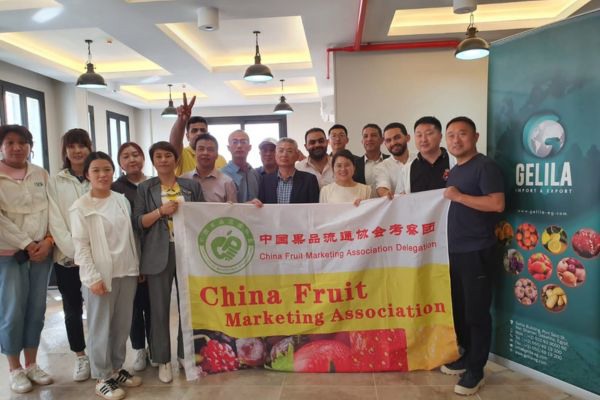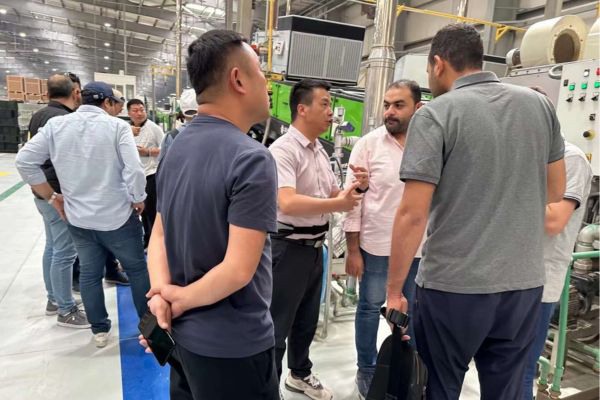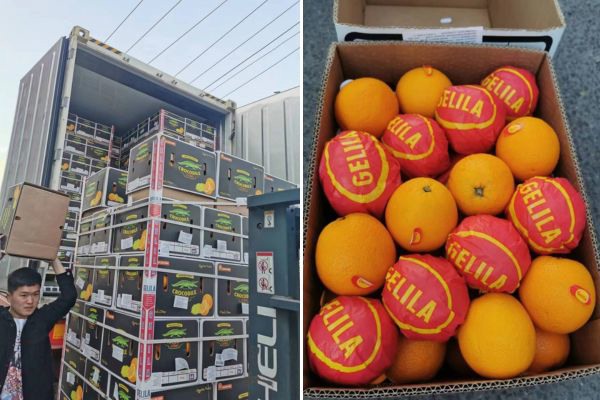The China Fruit Marketing Association visited Egypt last week and met with a number of producers and packing stations, working on the export of grapes, citrus, and pomegranates. Among these companies, is the Egyptian citrus exporter Gelila.
Eslam Gelila, CEO of Gelila, said: "It was a very important and successful visit, during which our partners in China were able to have a closer view of our operations. We discussed the difficulties we encounter this season and the potential ways to solve them, and this will undoubtedly strengthen our exports to China."

According to Eslam, the discussion addressed particularly the issue of transit time, which is quite long, and other topics such as the situation of the citrus season in Egypt, the quality, export process, and treatment of fruits.
Eslam explains: "One of the main issues in our exports to China is the issue of transit time, which reaches up to 1 month. We select the strongest fruits that will withstand this period and arrive fresh to the final consumer. But it is possible to reduce the transit time. In this regard, we have agreed to launch negotiations with the maritime companies, directly and through the authorities of our countries, to open new direct lines between Egypt and China. The Chinese market is highly exigent in quality and we must provide all the logistic efforts to guarantee a fresh product in less time."

One of the requirements of the Chinese consumer is the size of the fruit, said Eslam: "Chinese consumers generally prefer large sizes. However, as everyone knows, we have had fewer large sizes this season in Egypt due to the weather conditions. We tried to convince our Chinese counterparts to accept smaller sizes, and some of them were responsive, and accepted the sizes available for part of their geographical market in China."
Due to the scarcity of large citrus sizes, exports to China have declined this year. The decrease reached 30-40% in the case of Gelila, according to Eslam. However, in the context of the shortage of citrus from South Africa, there is room to increase the volumes exported to China before the end of the season, he adds.

"The delegation also witnessed first hand Gelila's operations, including our packing house, and asked questions about the process of handling and treatment of the fruits. In this regard, they were totally satisfied to see the professionalism and impeccability of our teams and operations," said the exporter.
For his part, a member of the delegation said on the Chinese social network WeChat: "Today, the 9th packing station we visited is Gelila. The company has a huge production capacity, a strong brand, and a large workforce. The working conditions are very hygienic. We received in-depth explanations about the technology of orange preservation, refrigeration, loading, and unloading, warehouse storing, etc."

"The meeting was a success and we are looking forward to doing more business with China. We enjoy long relationships with our customers there, and it is a very big market. They are also very satisfied with our production, and placed new orders during the meeting itself," added Eslam.
Gelila has marketed this year a volume of 60,000 tons of citrus, 30% more than last season, according to Eslam. "We also have a large yearly volume of onions. We're currently planning an investment to increase our packing house capacity from 450 to 600 tons per day, and we are also looking to expand into other markets such as grapes, stone fruits, pomegranates, mangos, and sweet potatoes," he concluded.
For more information:
Eslam Gelila
Gelila
Tel. +20 100 000 4540
Email: ceo@gelila-eg.com
www.gelila-eg.com
